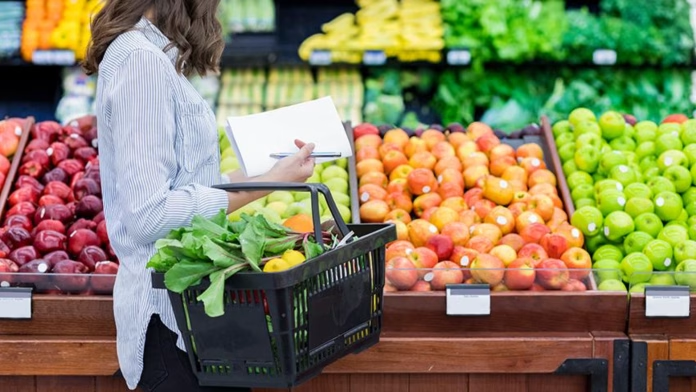On Thursday, the regulator of Britain’s food industry refuted the notion that high food price inflation was a result of weak retail competition. This statement supported supermarkets’ stance as they had been accused of profiteering during a period of cost of living crisis.
Amidst the crisis, certain politicians, consumer groups, and trade unions have pointed fingers at supermarkets, including major players like Tesco and Sainsbury’s, accusing them of earning exorbitant profits. However, the grocers firmly refute these allegations, deeming them baseless and without merit.
The Competition and Markets Authority (CMA) reported that as it continued its investigation into the grocery sector, the evidence indicated a more favorable scenario compared to the fuel market. The findings revealed robust price competition among all supermarkets and discounters, showcasing a healthier level of competition.
Official data indicates that UK food price inflation surged to its highest level since 1977 in March, surpassing 19%. Although there was a slight improvement in June, with a decrease to 17.3%, the burden on the financial situation of numerous households remains significant.
“Although food price inflation is at historically high levels, evidence collected to date by the CMA indicates that competition issues have not been driving this,” the regulator said.
The retail grocery sector experienced a significant downturn in its operating profits during the fiscal year 2022-2023, as they plummeted by 41.5%. This decline was accompanied by a notable drop in average operating margins, which went down from 3.2% to 1.8%. These figures indicate that retailers were unable to fully pass on the increasing costs to consumers.
Additionally, it was observed that market share had been gained by the most economical retailers, Aldi and Lidl, indicating that other retailers may face limitations in increasing prices without experiencing a loss of business.
Nevertheless, the CMA emphasized the need for stricter regulations regarding unit pricing, which refers to the cost of a specific product per weight or volume. It urged the government to undertake legislative reforms to assist shoppers in identifying the most favorable deals.
“Not all retailers are displaying prices as clearly as they should, which could be hampering people’s ability to compare product prices,” CMA Chief Executive Sarah Cardell said.
She emphasized that retailers found in violation would receive instructions to implement the required changes, and failure to do so would expose them to potential enforcement action.
During the upcoming stage of the investigation, the CMA will delve into competition and pricing dynamics across the supply chain for ten product categories, encompassing items such as milk, bread, and baby formula.
Earlier this month, the CMA stated that the diminishing retail competition was a contributing factor to the increased fuel prices faced by drivers.
The CMA’s report received a warm welcome from both the government and the British Retail Consortium (BRC), representing the supermarkets.
“Retailers have gone above and beyond to try and protect consumers from rising costs in the supply chain,” BRC Chief Executive Helen Dickinson said.
Governments across Europe have been struggling with high inflation. Last month the French government secured a pledge from 75 food companies to cut prices on hundreds of products. Hungary, meanwhile, has imposed mandatory price cuts.





